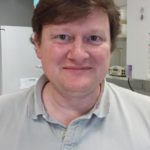Lien vers Pubmed [PMID] – 24278487
Lien vers HAL – Cliquez ici
Lien DOI – e248910.1371/journal.pntd.0002489
PLoS Negl Trop Dis 2013 Nov; 7(11): e2489
Plasmodium vivax is the most prevalent human malaria parasite, causing serious public health problems in malaria-endemic countries. Until recently the Duffy-negative blood group phenotype was considered to confer resistance to vivax malaria for most African ethnicities. We and others have reported that P. vivax strains in African countries from Madagascar to Mauritania display capacity to cause clinical vivax malaria in Duffy-negative people. New insights must now explain Duffy-independent P. vivax invasion of human erythrocytes.Through recent whole genome sequencing we obtained ≥ 70× coverage of the P. vivax genome from five field-isolates, resulting in ≥ 93% of the Sal I reference sequenced at coverage greater than 20×. Combined with sequences from one additional Malagasy field isolate and from five monkey-adapted strains, we describe here identification of DNA sequence rearrangements in the P. vivax genome, including discovery of a duplication of the P. vivax Duffy binding protein (PvDBP) gene. A survey of Malagasy patients infected with P. vivax showed that the PvDBP duplication was present in numerous locations in Madagascar and found in over 50% of infected patients evaluated. Extended geographic surveys showed that the PvDBP duplication was detected frequently in vivax patients living in East Africa and in some residents of non-African P. vivax-endemic countries. Additionally, the PvDBP duplication was observed in travelers seeking treatment of vivax malaria upon returning home. PvDBP duplication prevalence was highest in west-central Madagascar sites where the highest frequencies of P. vivax-infected, Duffy-negative people were reported.The highly conserved nature of the sequence involved in the PvDBP duplication suggests that it has occurred in a recent evolutionary time frame. These data suggest that PvDBP, a merozoite surface protein involved in red cell adhesion is rapidly evolving, possibly in response to constraints imposed by erythrocyte Duffy negativity in some human populations.




